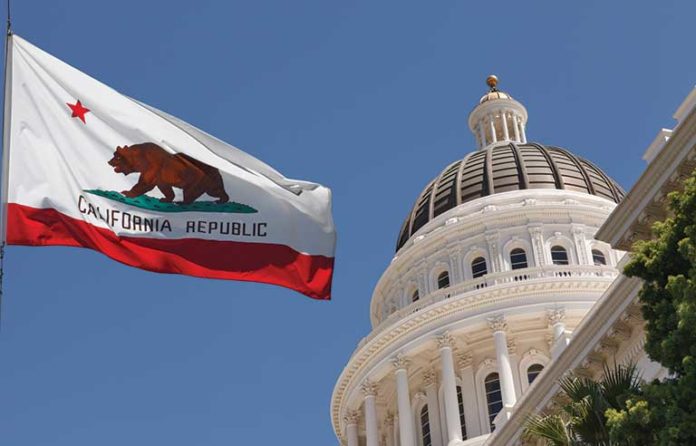On September 17, 2020, Governor Gavin Newsom signed into law two COVID-19 related bills – Senate Bill (SB) 1159 and Assembly Bill (AB) 685. SB 1159 is an urgency bill that is now effective immediately.
SB1159:
California legislature has passed Senate Bill 1159, which creates a new framework for COVID-19-related workers’ compensation claims. As emergency legislation, this bill would take effect the day it is signed and chaptered. SB 1159 states that a “disputable presumption” exists for an employee who suffers illness or death resulting from COVID-19 on or after July 6, 2020 through January 1, 2023.
Under one of the Golden State’s new laws, a presumption exists that employees’ COVID-19-related illnesses or deaths are covered injuries for purposes of workers’ compensation.
Businesses with COVID-19 outbreaks are facing an emerging legal threat from claims that workers brought coronavirus home and infected relatives, which one risk analysis firm said could cost employers billions of dollars.
The daughter of Esperanza Ugalde of Illinois filed in August what lawyers believe is the first wrongful death "take home" lawsuit, alleging her mother died of Covid-19 that her father contracted at Aurora Packing Co's meat processing plant. The cases borrow elements from "take home" asbestos litigation and avoid caps on liability for workplace injuries, exposing business to costly pain and suffering damages, even though the plaintiff never set foot on their premises.
Presumption is disputable. That means, if the Employer can establish the infected employee likely did not become infected at school or at office, they can deny the claim and with sufficient evidence, may not be required to compensate the employee. An employer may dispute the presumption with evidence such as putting in place measures to reduce potential transmission of COVID-19 in the employee’s place of employment and/or statements made by the employee.
As SB 1159 is now law, employers need to be vigilant and prepared to respond to any indication that an employee has contracted COVID-19 and should coordinate with their workers’ compensation insurance carriers and claims adjusters to establish best practices for reporting and responding to potential workers’ compensation claims based on COVID-19.
Employer may put in place a system to screen workers to be screened daily for coronavirus symptoms and isolated and denied going to the office immediately if they exhibit symptoms and offering the possibility for the employer to notify the public health services as soon as a positive case is detected. This method applying to Visitors, contractors or customers trying to enter into employer facilities.
AB685:
AB 685 modifies occupational safety standards to require employers to provide notice and report information related to COVID-19 exposures and provides the California Division of Occupational Safety and Health (“Cal/OSHA”) expanded authority to enforce such requirements and ensure safe workplace operations. AB 685 is effective January 1, 2021.
AB 685 requires employers to comply with certain reporting requirements and provide the following four notices related to potential COVID-19 exposures in the workplace within one business day of being informed of the potential exposure. If an employer or the employer’s representative receives a notice of a potential exposure to COVID-19 in the workplace by a “qualifying individual”, the employer must provide a written notice to all employees, and to the employers of subcontracted employees, who were present at the same worksite within the infectious period (as defined by the State Department of Public Health), stating that they may have been exposed to COVID-19.
How CrisisGo can help employers and employees?
In response to the COVID-19 pandemic, CrisisGo has developed a comprehensive digital health screening tool to assist businesses and schools in determining the health status of their employees, students, and staff.
By completing a daily health survey, the Safety iPass allows employees to “self-certify” that they are safe to return to the office. Once the employee has been certified they can return to the office and are issued a Digital Entry Badge (DEB), which can be scanned at the entry point for your office to validate and verify their ability to enter safely. Employees can present their existing employee ID badge, CrisisGo digital entry badge, or use the CrisisGo app with the iPass badge. Each positive case detected by Safety iPass can then be escalated to designated personnel, while preserving HIPAA compliance and allow employer to comply and implement AB 685 and SB1159.
.png?width=1032&name=SIP%20Daily%20Flow%20(Employees).png)
CrisisGo Safety iPass is the most comprehensive and robust digital screening solution available today. Safety iPass allows your business to efficiently and effectively conduct safety screenings while collecting the data necessary to allow stakeholders to respond to trends immediately. To learn more, visit business.crisisgo.com/safetyipass.
For more details on Assembly Bill No. 685, click here.
For more details on Senate Bill No. 1159, click here.








.png?width=1032&name=SIP%20Daily%20Flow%20(Employees).png)




No Comments Yet
Let us know what you think